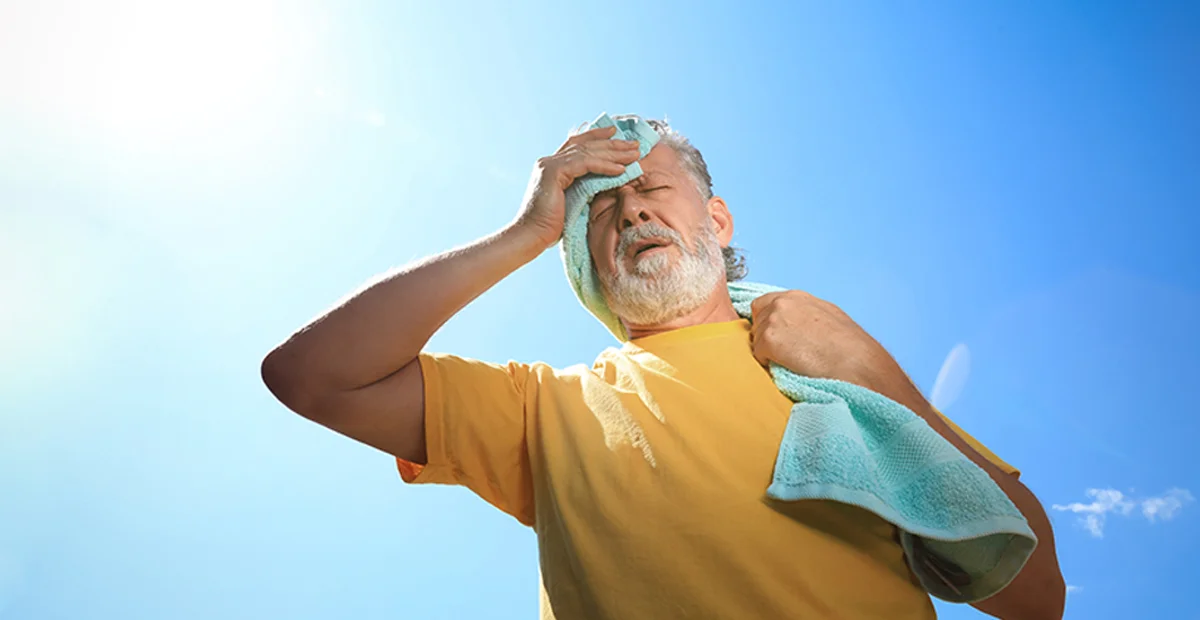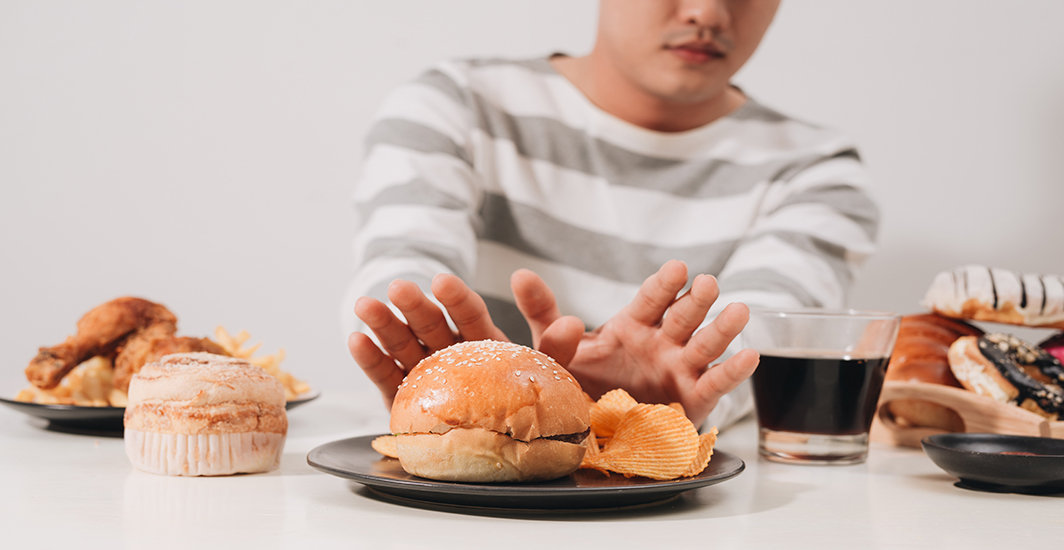- Home
- Blog
- Conditions
Deal with Variety of Heat-related Conditions
Conditions
Deal with Variety of Heat-related Conditions
By - 10 April 2023, Updated on -12 May 2023
Share this article
0
2 likes

Summer is a time to enjoy, relax, and do fun activities such as camping, picnics, mountaineering, and so on. Summer, like any other season, has its advantages and disadvantages. Summer brings with it heat and heat-related illnesses. Although all heat-related deaths and illnesses are preventable. Approximately 658 people die as a result of the heat. Heat exhaustion, heat stroke, and heat cramps are all common conditions.
Sunburn
Sunburn can be caused by the sun's harmful ultraviolet radiation. This generally occurs when the body is exposed to sunlight. Mild dizziness, fatigue, and red, painful rashes on the skin are all symptoms.
How to deal?
- Apply a moisturizing lotion or a sunscreen with a high SPF. You can get a variety of sunscreens at your local Apollo Pharmacy or order online.
- Touching rashes should be avoided.
- Consume plenty of water.
- Avoid going out in the sun without sunscreen.
Heat syncope
Heat syncope is characterized by fainting or dizziness during the summer. It occurs as a result of standing for an extended period or suddenly standing up after sitting or lying. Heat syncope may be exacerbated by dehydration and a lack of acclimatization.
How to deal?
- Sit or lie down somewhere cool.
- Drink water, clear juice, or sports drink slowly. Discover the various flavors of sports drinks available at Apollo Pharmacy.
Heat rash
A heat rash is an irritation of the skin caused by excessive sweating in hot, humid weather. Heat rash is identified by red clusters of pimples or small blisters. It is most commonly found on the neck, upper chest, groin, under the breasts, and in the elbow creases.
How to deal?
- To soothe the rashes, apply baby powder.
- Keep your cool as much as possible.
- Make sure the rashes are dry.
Heat cramps
Heat cramps typically affect people who are sweating profusely as a result of strenuous activity. Sweating reduces the body's salt and moisture levels. Painful cramps in the abdomen, arms, or legs, as well as muscle cramps, are caused by low salt levels. Heat cramps are also a sign of heat exhaustion.
How to deal?
- Avoid strenuous physical activity.
- Take no salt tablets.
- Hydrate with electrolytes and carbohydrates.
- Seek medical attention if symptoms do not subside after one hour or worsen.
Heat exhaustion
Heat exhaustion is a condition characterized by an excessive loss of water and salt as a result of dehydration. Dehydration impairs the body's ability to regulate temperature. It primarily affects the elderly, those with high blood pressure, and those who work in hot environments. Symptoms include excessive sweating, a sticky mouth, a headache, dizziness, and low or muscle cramps.
How to deal?
- Constantly sip water.
- Take your clothes off.
- Take a refreshing shower/bath.
- If the condition worsens or lasts longer than an hour, seek medical attention.
Heat stroke
Heat stroke is a serious and potentially fatal condition caused by untreated heat exhaustion. It raises the body temperature to approximately 103°F. Other symptoms of heat stroke include arrhythmia, an abnormal pulse, breathing difficulties, and a red and painful skin rash.
Rhabdomyolysis is the acute phase of heat stroke that also causes seizures and kidney damage. Rhabdomyolysis is characterized by muscle cramps/pain, abnormally dark urine, and exercise intolerance.
How to deal?
- Put an end to your physical activities (in case of rhabdomyolysis symptoms).
- Transfer the individual to a cool location.
- In the event of a medical emergency, dial 911.
- Anything should be avoided.
- A cool bath or cloth can help to reduce body temperature.
Diarrhea and food poisoning:
These are the most prevalent summer illnesses. Diarrhea is usually caused by consuming contaminated water and food. It can also cause food poisoning in some cases because warm and humid weather promotes parasitic growth.
How to deal?
- Drink pure water.
- Consume cleanly prepared food.
- Avoid eating at roadside stands.
How to prevent heat-related illnesses?
- Don't dismiss your thirst. Drink as much fluid as possible.
- Consume liquids with a high sugar content as little as possible.
- Include coconut water, fruit juices, water-rich fruits such as musk melon and watermelon, and grapes in your diet.
- Drinks that have been over-chilled should not be consumed.
- Prefer to do things inside. Go to public places or shopping malls where you can limit your sun exposure.
- When at home or in the shade, always use sunscreen lotion with an SPF of at least 15.
- Wear light-colored, light-weight, loose-fitting clothing that covers your arms and legs.
The bottom line is
Even though we enjoy exertion because of fun and adventure activities, protecting ourselves from UV radiation is the key to enjoying the summer. Include energy drinks and ORS, as well as sunscreen, which is available at Apollo Pharmacy's offline and online stores. Avoid ignoring the signs and symptoms of summer diseases because they can be avoided with prompt treatment.
Services
Conditions
Leave Comment
Services
Recommended for you

Conditions
Avoid These Foods in Summer
Summer brings about a slew of changes. Summer foods and drinks that may cause digestive issues require special consideration. Otherwise, the hot weather could endanger your health. You must stay hydrated and healthy, and you must avoid certain foods. #ApolloPharmacy #GoodFood #BetterHealth #BeatTheHeat #CarefreeSummer #BeatTheSummerWithApolloPharmacy

Conditions
Challenge of Managing Your Diabetes
How has diabetes become a challenging disease? Diabetes is a leading cause of death, worldwide. Know more about the impact of diabetes on health, types of diabetes, and its preventive measures.

Conditions
The Monsoon Guide on Keeping Disease-carrying Mosquitoes Away
Unlike their sizes, mosquitoes largely contribute to spreading a majority of diseases to humans. Not everyone is aware of the menace they cause, hence, read further to know everything about these pesky insects and avoid them as much as you can! #ApolloPharmacy, #MosquitoDiseases, #AvoidMosquitoes, #MosquitoDay
Subscribe
Sign up for our free Health Library Daily Newsletter
Get doctor-approved health tips, news, and more.

